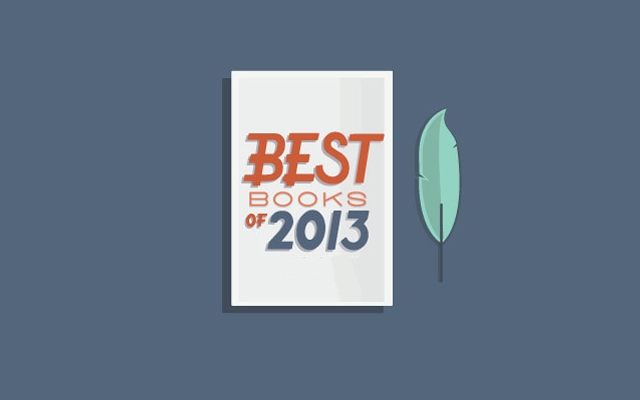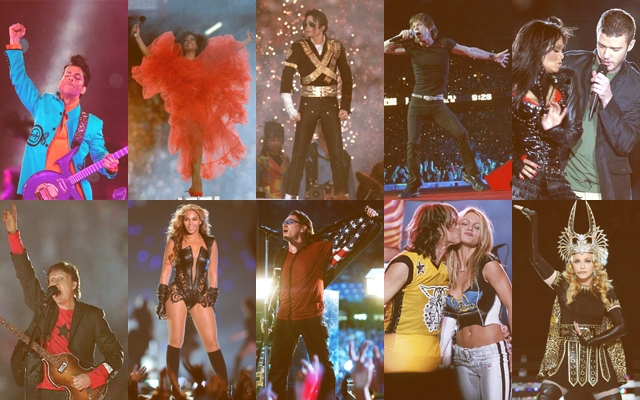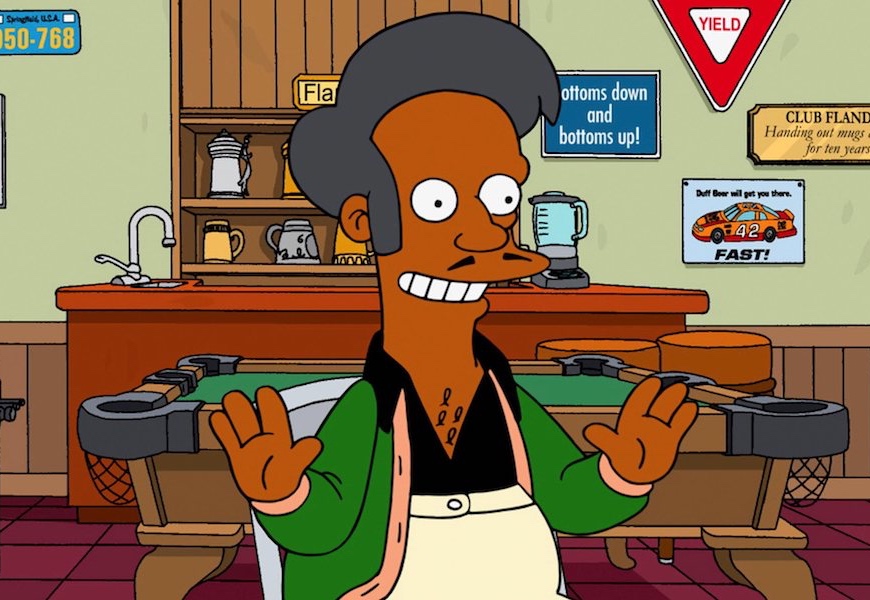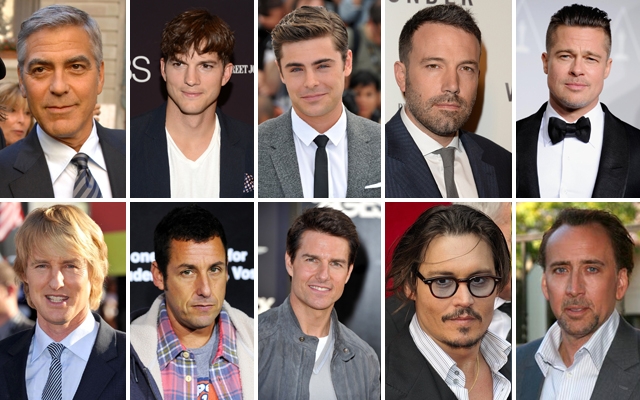2013 had a lot of heart, and equal blood, sweat and tears. What did you read that changed you? Did it change back? 2013 is the year of genre-splicing, of new forms for old truths. None of the works on the following list stays in one box. Science writing, fiction, poetry, memoir cum cognitive study, these beautiful books are so soul touching they’re cruel, so inspiring they’re almost blasphemy. Read them all.
Check out seven of the best books of 2013.
Doctor Sleep by Stephen King
When J.D. Salinger died in 2010, the publishing world erupted at he prospect, now the guarantee, that his vaulted fiction would be distributed to the public for the first time. It heralds something very rare in literature: a new, already classic work. This is what we get with Stephen King’s Doctor Sleep, his sequel to The Shining 25 years later.
No doubt here that King is a master writer, and that each of his novels deserves praise. But this one is the return to his Kingdom. The story picks up with a now adult Dan Torrance, haunted by his past, and still possessed of his abnormal ability. If The Shining is a horror tale about alcoholism and abuse, Doctor Sleep is a ghost story about inheritance. Dan has taken up his father’s anger and addiction, is traumatized by his childhood and the quite literal ghosts locked up in his mind. He has met a young girl, too, named Abra, and she shares his curse. Welcome back to the Overlook Hotel.
—
Ten Billion by Stephen Emmott
I won’t tell you what to think, but I’ll tell you what you need to know. Stephen Emmott’s slim black book is passport and plane ticket to a planet we live on, flight direct from the world we live in. It’s a revelation of what Earth, its ecosystems, will look like when the human population reaches ten billion (which it inevitably will inside fifty years). The prediction, supported by mounting evidence: the planet simply can’t maintain these numbers. It faces, in our current infrastructure, global collapse. The sparsely texted, beautifully handled design of the small book only adds to its frank power. It says you need to listen now. Problems abound and solutions dwindle and fail. This book offers information, but little consolation. It’s lesson takes form as you thumb through its coloured body: the human race needs a new way of relating to use, to demands, to infrastructure, and to itself. It needs a new way of being human.
—
The Ocean at the End of the Lane by Neil Gaiman
The Ocean at the End of the Lane is Neil Gaiman’s long-awaited return to adult fiction. His subject, however, remains adolescence. Gaiman explains in his note to the text that this book is what came out when he tried to tell his wife, Amanda Palmer, who he is exactly, and why. All incredible happenings in this multi-levelled story about a young boy slipping into a world he fears and does not understand can be taken at face value, or flipped. The book’s a puberty allegory. Alternatively, it’s a rationalization of the damage and dynasty a father’s infidelity can have. It’s a ghost story, or just a story about loss.
Gaiman’s as dark as ever, but he comes to The Ocean with a new, even more stunning simplicity, even greater ability to make realms of pure imagination seem more honest and real than the most quotidian things. Indeed, it asserts that imagination and adventure is the best way to peel back the masks of these things and look into the hole where their meaning came from. Full of human failure, sadness and growth, The Ocean at the End of the Lane wraps around your heart like a worm, like a passenger, and stays there until you grow up.
—
The Autistic Brain by Temple Grandin and Richard Panek
Temple Grandin is a doctor of animal science, professor, author, and probably the single person in the world who has done the most for our understanding of autism. This is because she has it. As she discusses in her book, co-authored by Richard Panek, autism lives on a sliding scale of intensity, which Grandin is at one end of. Her new book provides some of the most coherent, empirical, original, and useful thought on the atypical mind ever. Beyond this, the author’s obliterating insight combined with its proximity to her subject creates an absolutely unique, thrilling prose dynamic: “When Mother noticed in me the symptoms that we would now label autistic—destructive behavior, inability to speak, a sensitivity to physical contact, a fixation on spinning objects, and so on— she did what made sense to her.” This book makes a lot of sense, and it’s inspiring.
—
red doc> by Anne Carson
Anne Carson is a Canadian Classical scholar, one of her nations most original and challenging poets. Her newest book, red doc>, is a novel in verse, sequel to her celebrated Autobiography of Red. Both books are stories about Geryon, the mythical giant slain by Hercules. Walking a network of waterfalls between telling, retelling, appropriation and creation, red doc> finds Geryon alive and contemporary, Canadian, but also mythic, powerful and proportionate. He is victim, hero, and villain, archetype and actual character. Recontextualized again and again in thrilling verse that splays on the page, Geryon is the grandkid of his own myth and nephew to John Berryman’s ‘Huffy Henry’ of Dream Songs. Anne Carson knows just how to explain poetic tradition by deconstruction, by explosion and trick. This obtuse, hedonistic book is verse’s kama sutra: look at all the positions language can take, and read of red-winged Geryon, Canadian kid.
—
Ventrakl by Christian Hawkey
American poet Christian Hawkey’s Ventrakl is a book about the collaboration, conversation, and séance that is translation, and in a larger sense literature. It is a collaboration with the Austrian expressionist and ‘deep image’ poet George Trakl, dead some 99 years now. It’s also a collaboration with Trakl’s book, Gedichte (poems) published in 1913, a century before Hawkey made contact. “Voices pass through consciousness,” the book’s preface begins. “Sometimes called upon, other times without request… What happens when those voices are of the deceased? When a parent, for example, long since passed away, suddenly calls your name?” Translation. “To read is to animate words, let them speak with you, alongside you, as you…Books— of the living or the dead—are the truest ghosts among us, and this book is a ghost containing a ghost.” Hawkey’s Ventrakl is a translation of George Trakl’s Gedichte, but one that acknowledges the ghost story that language is, and the ways processes like translation impossibly try to grasp at its ephemera. You can feel the mist, and emptiness, and holes inside this book full of translations done by storing German poems in jars of water for a year, by having dinner with a dead man. Maybe it’s the closest to real translation we can come.
—
The Autobiography of Mark Twain: Volume Two by Mark Twain, Executed by the Mark Twain Project
Samuel Clemens could never sit down and write the autobiography of his other self. Not start to finish, anyway. It was too boring. The seminal American author, who took his pen-name from the river-boats he captained, wrote his life in fragments instead. Whenever an old anecdote struck his mind, he’d write it down, and the pages piled up.
A legend in his own time, Twain demanded, upon submitting these recollections to his publisher, that they not be set in print until 100 years after his death. This way he could be as honest about everyone he knew, from con-men to Ulysses S. Grant. All, he figured, would be too long-dead to harbor a grudge. Twain died in 1910, and the first volume of his autobiography was published a prompt 100 years later, for the very first time. The second, as massive as its sibling, is not just honest, but also hilarious, arresting, and absolutely master-cast. Twain’s book is, in addition, a near encyclopedic first-hand resource on what the United States looked like a hundred, a hundred-fifty years ago. The huge book is also available online, free.












